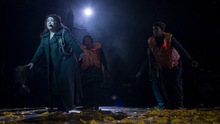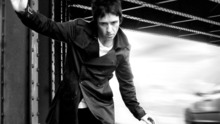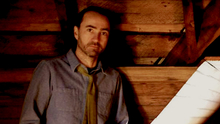Inevitably, success builds expectation. Few would have predicted that Deftones’ 2010 release Diamond Eyes would be quite so monumentally well-received: here was a band who had already shelved a still-yet-unheard album, Eros, been the victim of persistent in-fighting during the sessions for 2006’s Saturday Night Wrist, and whose bassist, founding member Chi Cheng, lay in a car crash-induced coma. These were hardly the circumstances for a stone-cold classic, but with former Quicksand bass player Sergio Vega handling the low-end, the Sacramento quintet returned with an album that came close to the consistency of 2000’s era-defining White Pony.
Whereas with Diamond Eyes simply getting the band to produce and release an album was a miracle in itself, now the band’s latest, Koi No Yokan, faces the difficult task of living up to Deftones’ last effort. Frontman Chino Moreno has already raised expectations to vertigo-inducing heights after telling Billboard.com, 'I really feel like we reached a peak on our dynamics on this record.' It’s quite a claim – but there’s not a single track on Koi No Yokan that disproves it.
While Diamond Eyes could occasionally feel like a step back from Saturday Night Wrist – all riffs, and not enough ambience – Koi No Yokan welds the finest elements of the two to create a heady fusion. This is widescreen alt-rock with an appropriately mammoth production, where euphoric choruses and crushing verses don’t just sit alongside each other but ebb and flow to become inextricable entities – see gargantuan rockers such as ‘Leathers’ and ‘Gauze’, cutting with serrated riffs before soothing with embalming melodies. Koi No Yokan is Deftones coming to terms with their own strengths, taking everything that’s gone before, then refining and polishing it to an impossible sheen.
This time around, Sergio Vega’s bittersweet position has become more firmly established, and he lends a bigger hand to the band’s songwriting, something made immediately apparent by the cascading bass melodies in ‘Swerve City’. With the album’s increased focus on ambience, turntablist Frank Delgado, too, has a more important role to play in wistful arrangements like ‘Entombed’ and ‘What Happened To You?’, his synths and samples taking equal prominence with Stephen Carpenter’s gut-bustingly guttural eight-string guitar more so than on previous records.
Sure, Carpenter still provides the wrecking-ball riffs (‘Poltergeist’, ‘Goon Squad’), but they’re elegantly tempered by Moreno’s increasingly pop-infused melodies, which appear to have taken a cue or two from his work with electro side-project Crosses. Lyrically, the album embraces the more traditional aspects of love and sex, and features less of the terrifying imagery that often dominates Moreno’s lyrics – no surprise when you consider that ‘Koi No Yokan’ is the sensation of love at first sight in Japanese. While lines like “I’m hypnotized by your name / I wish this night would never end” could sound clichéd or even trite in the wrong hands, they work within the context of the musicianship that envelops and absorbs them. And love, being the impossible force that it is, needs a good distorted guitar or two to truly convey its bipolar afflictions.
At this stage, it’s difficult to determine where Koi No Yokan will sit in the already crowded podium of essential Deftones albums, but whatever position it assumes, the ascent that takes place will be an intense, passionate one: a stomach-turning twist through corridors of riffs, around every corner another punishing progression or triumphant refrain. It’s an affecting journey best demonstrated in the album’s lengthier, larger-scale tracks, ‘Tempest’ and ‘Rosemary’, but it’s a sensation that’s channelled throughout Koi No Yokan’s duration. It may be love at first sight, but it’s a love that still has room to grow – and that’s the best kind of all.
-
9Michael Brown's Score























